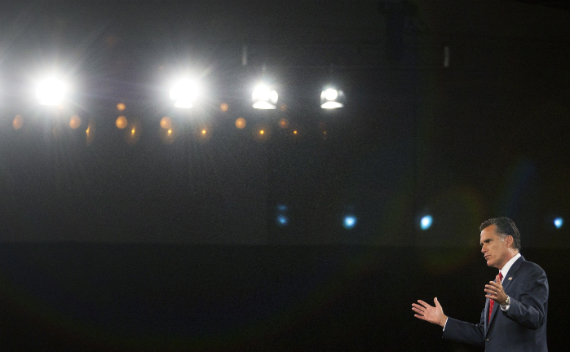Campaign 2012: A Romney Foreign Policy Strategy?
More on:

Mitt Romney gave his foreign-policy speech today at the Citadel. Here are five quick reactions.
First, the meta-theme in Romney’s foreign-policy pitch is that he believes in America and President Obama doesn’t:
This is America’s moment. We should embrace the challenge, not shrink from it, not crawl into an isolationist shell, not wave the white flag of surrender, nor give in to those who assert America’s time has passed. That is utter nonsense. An eloquently justified surrender of world leadership is still surrender.I will not surrender America’s role in the world. This is very simple: If you do not want America to be the strongest nation on Earth, I am not your President.
You have that President today.
Not much subtlety there.
Second, Romney sees a pretty traditional list of threats facing the United States. It includes a nuclear Iran, an Afghanistan overrun once again by the Taliban, a failed Pakistan, a belligerent China, an aggressive Russia, and a Mexico battling drug traffickers. Most foreign policy experts would agree that all of these are potential problems, though they would argue about their priority and relative importance.
Third, Romney’s plans for addressing these threats in his first one-hundred days in office mix the oddly specific, the surprisingly vague, and the non-committal. The oddly specific include an increase in the U.S. Navy’s "shipbuilding rate from 9 per year to 15” and the regular presence of aircraft carriers in the Eastern Mediterranean and the Persian Gulf. The surprisingly vague are an effort “to train all of our soft power resources on ensuring that the Arab Spring does not fade into a long winter” and “a campaign to advance economic opportunity in Latin America.” The non-committal is the call for “a full review of our transition to the Afghan military.”
Fourth, although Romney rolled out a foreign-policy advisory team yesterday that reads like a who’s-who of officials in George W. Bush’s administration, he is not emphasizing democracy promotion as a goal of his foreign policy. He barely mentioned democracy in his speech today, and he said nothing about how he might promote it.
Finally, Romney may eventually develop a foreign-policy strategy but he doesn’t have one yet. A good foreign-policy strategy names goals, identifies trends, sets priorities, and identifies means. Romney’s speech today did none of that. It especially skirted the question of where the world is going and how that affects U.S. interests and opportunities. He may find it politically advantageous to say:
God did not create this country to be a nation of followers. America is not destined to be one of several equally balanced global powers. America must lead the world, or someone else will.
But whether we like it or not, power is being dispersed globally. We can’t wish that fact away; it is the consequence of globalization. (A development, by the way, that the United States championed.) As George W. Bush and Barack Obama both learned the hard way, as countries have gained power they have wanted a greater say in global affairs. And they frequently aren’t interested in following Washington’s lead.
Figuring out how to navigate a world in which the gap between America and the rest is shrinking is perhaps the country’s biggest foreign-policy challenge. It is made all the harder by the country’s fiscal problems. How Romney would reconcile his foreign-policy ambitions, and his related plans to grow the U.S. military by 100,000 troops, with the need to stanch the flow of governmental red ink is something he still has to answer.
The beauty of campaigns is that there will be plenty of chances to ask the question.
More on:
 Online Store
Online Store